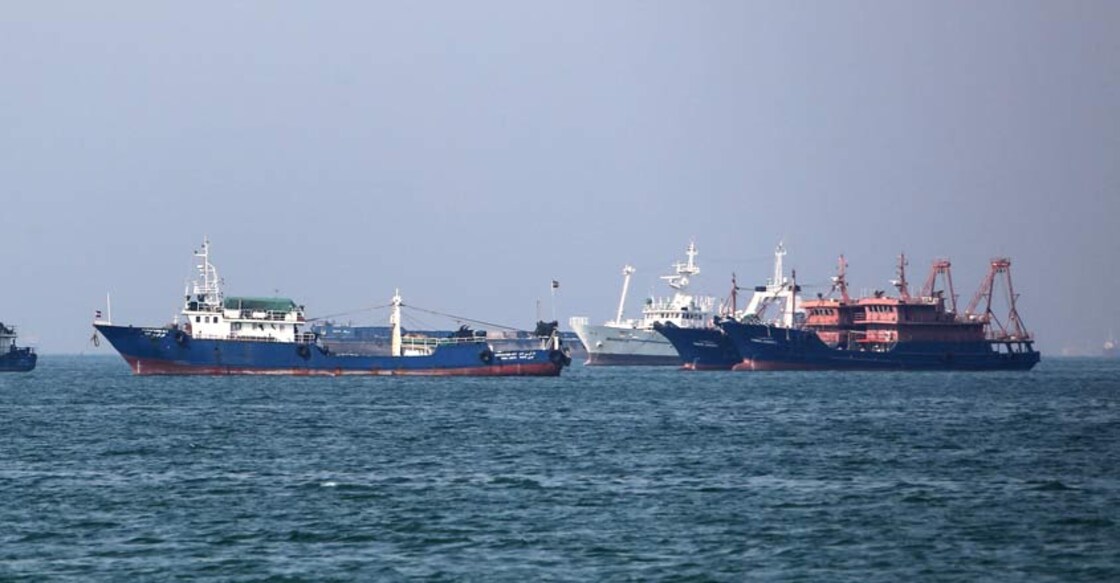Strait of Hormuz crisis: US-Iran confrontation could badly hit India

Mail This Article
The two-month long Lok Sabha electoral marathon has so engrossed India that the media and analysts have largely ignored the looming confrontation between Iran and US, latter incited by the Gulf Cooperation Council (GCC) members Saudi Arabia and the UAE. US President Donald Trump came into office in 2017 calling the 2015 Iran-US nuclear deal, labelled Joint Comprehensive Programme of Action (JCPOA), as the “the worst deal ever negotiated”. However, Trump withdrew from it only in 2018 by re-imposing unilateral US sanctions on Iran. Economic tourniquet on Iran to engineer regime change has now been tightened.
Worsening scenario
US-Iran relations’ worsening commenced with the appointment of more hawkish senior advisers by Trump. John Bolton assumed charge as National Security Adviser and Mike Pompeo was moved from the Central Intelligence Agency (CIA) to State Department. Bolton had written in the New York Times in 2015 that “To Stop Iran’s Bomb, Bomb Iran”. Trump, at the very start of his presidency, undertook to re-set relations with the Gulf countries, which his predecessor Barack Obama altered by granting Iran the nuclear deal, despite serious objections by the Saudis and Emiratis. By visiting Riyadh in mid-2017 to attend a so-called Sunni summit, on his first visit abroad which US presidents usually undertake to Europe, he lined up behind old allies, thereby making confrontation with Iran inevitable, as in a post-ISIS West Asia Shia-Sunni contestation was already underway.
Next steps by the US slowly unfolded during the April Israeli parliamentary election when US endorsed Israeli annexation of Golan Heights and declared the Islamic Revolutionary Guard Corps (IRGC) as a terrorist organisation. At the end of April, India was told by visiting US deputy assistant secretary of state that oil import from Iran waivers would not be renewed post-May. On May 5, Bolton announced despatch of an aircraft carrier group to the region. Beleaguered Iranian President Hassan Rouhani, caught between hardliners at home and Trump, hardened his position, announcing on May 8 that Iran would stop complying with some parts of the nuclear deal, short of resuming uranium enrichment by re-starting decommissioned centrifuges, tantamount to abandoning of the JCPOA. He gave 60 days to the Europeans to show they can protect Iran from US sanctions. The European Union’s decision to create a barter-based institution for oil payments to Iran, circumventing US sanctions, has been a non-starter.

Could go haywire
While this may simply be Trumpian deal-making posturing, there is danger, as The Economist warns of “potential for miscalculation”. Trump has in the past harshly criticised US wars abroad. An assumption that internal economic disruption in Iran will force regime change, in the 20 months remaining of his presidency, appears mistaken. On the contrary, US actions are marginalising moderate and reformist elements in Iran and centre-staging hawkish clerics and the IRGC, the last getting a more belligerent commander. Iran will move yet closer to the China-Russia axis. During the pre-JCPOA sanctions, China captured segments of Iranian petroleum and non-petroleum economy vacated by Europe, Japan and India. With China’s trade war with US escalating, Iran becomes a pawn, which the Chinese will use against the US by neutralising US sanctions by keeping some Iranian oil flowing abroad. China is the largest importer of Iranian oil, ahead of India.
The implications for India are serious as, unlike China, it does not have a balanced trade with Iran, thus making a barter arrangement difficult. India under the BJP-led Narendra Modi government has also been unwilling to push back US on India’s balancing of relations between the fighting Shia-Sunni camps. In fact, the US, alongside allies Saudi Arabia and the UAE, have ensured Modi “wins” even as the Lok Sabha election was declared and process commenced. The quick return by Pakistan of captured Air Force officer Wing Commander Abhinandan, deportation by the UAE of Indians needed in Augusta helicopter case to make corruption case against the Congress or against its ally NCP in civil aviation imbroglio and the extradition of Christian Michel, suspected of handling the Gandhi family money, were all instances of timely acts to help Modi electorally. This locks India into US corner in the Gulf, unlike China.

On any day, 17 million barrels of oil transit Strait of Hormuz, that connect the Gulf to Arabian Sea. Of this Saudis and Emiratis, by virtue of new and old pipelines, can export 6.5 million barrels avoiding the choke point, which the Iranians have threatened to block. Two Saudi oil tankers have claimed sabotage in the constricted shipping space, which may be factual or propaganda to goad US to act militarily. India would be the most affected by oil supply disruption, panic among over six million expatriates in the GCC nations and further dislocation of already tardy Indian exports. The next Indian prime minister would inherit this tricky scenario, worsened by the Modi government’s excessive cosiness with one of the camps. Indian people’s verdict on May 23 would determine who emerges to deal with this tricky scenario.
(The author is a former secretary, Ministry of External Affairs, and also ex-ambassador to the UAE and Iran)
Disclaimer: The views expressed in the article are those of the author.


